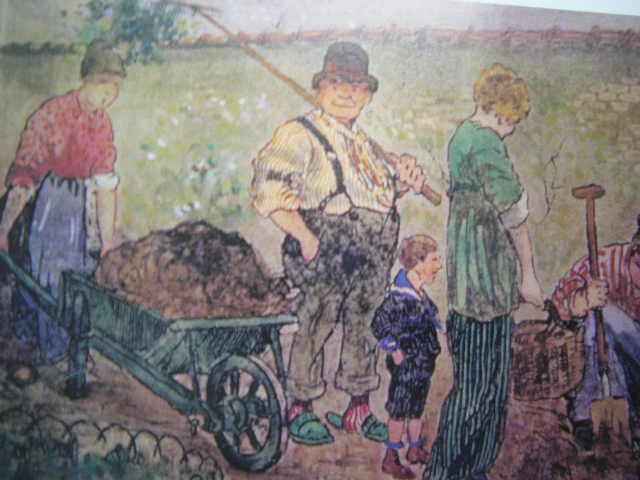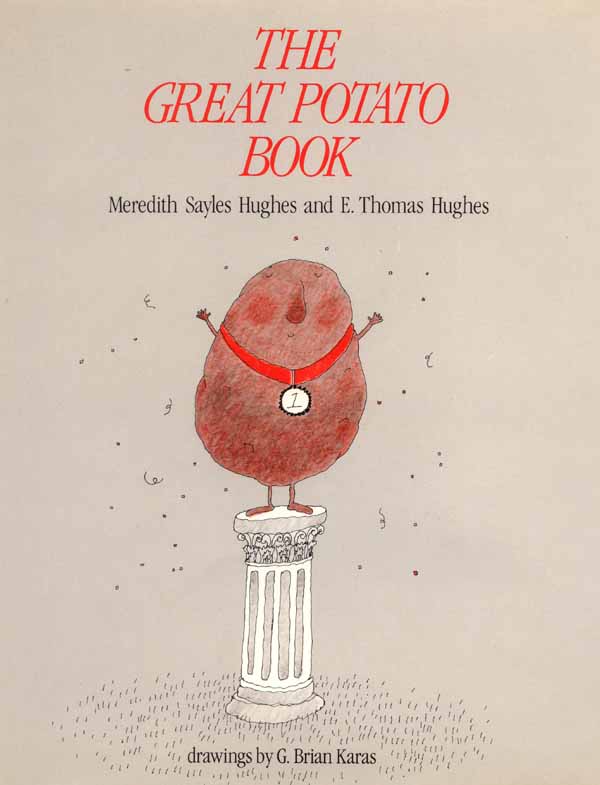Welcome to
The
Potato Museum On-Line
Here
you will find features, exhibits from our collections, a blog for
spud news/reviews, products, recipes, links and a shop.
The
Potato Museum, started (1975) in Brussels, Belgium, is the world's
first museum about the potato and features the planet's largest collection
about this valuable vegetable.
The
Potato Museum is not a product of the potato industry. We are a non-profit
educational organization dedicated to exploring the potato's fascinating
past, controversial present and promising future.
While
we occasionally enjoy eating Belgian fries, as well as chips (crisps
in UK), we mostly consume the noble tuber in many of its more nutritious
and delicious preparations.
We
welcome your comments, suggestions, financial support and ideas for
a permanent home.
"The Potato Museum...that idiosyncratic and
deadly serious institution."
---NY Times
"The Potato Museum is of the new modern type,
which cuts across academic frontiers; it's an enthusiast's museum
and our hard, cold, cynical world desperately needs enthusiasm."
---Kenneth Hudson, author of Museums of Influence
"....a museum that gives sustenance the kind
of attention museums give to wars, airplanes, human tragedy and the
like."
---Christian Science Monitor
"The most important issue confronting the
human race is how we are going to preserve the quality of the environment
and still feed the rapidly growing population into the next millennium.
The Potato Museum provides a vehicle to get the message across."
---Dr. John Niederhauser
1990 World Food Prize Laureate
|
Exhibits


Amazing Potato

Potato
Growing

Our Potato Gallery

Potato
Hall of Fame

The
Literary Potato

Save
Our Spuds

Potato Library Exhibits

Potato Heads

The Delicious Potato

Potato Peelers
Potato Anniversaries
|

EXHIBITS:
Amazing
Potato
Our
Potato Gallery
Potato Hall of Fame
The Literary Potato
Save Our Spuds
Potato Library Exhibits
Potato Heads
The Delicious Potato
Potato Anniversaries
Potato Peelers
Potato Growing
Political Potatoes

POTATO TALK
Our Blog
Total
Tater Experience
Listen
to spud songs while visiting The Potato Museum online.
Here's how:
File>New>Window>
>Potato Radio>select
song>wait for music to start>minimize window>restore www.potatomusum.com
To
listen to more songs, restore Potato Radio window and repeat process.
After
your Potato Museum visit, check out Potato
Engine and other favorite potato links.
Potato
Radio & Potato Engine are creations of
JEFFREY ALLEN PRICE
Why
the potato?
In the space of just
400 years, the potato has become a staple crop of many people around
the world whose antecedents had subsisted perfectly well upon grain
crops for anything up to 4000 years. The reason for this somewhat surprising
development is that the potato is the best all-around bundle of nutrition
known to mankind. Its ration of carbohydrate to protein is such that
anyone eating enough potatoes to satisfy their energy requirements will
automatically obtain most of the protein they require. Furthermore,
the "biological value" of potato protein (an index of the
nitrogen absorbed from a food and retained by the body for growth and
maintenance) is 73, second only to eggs at 96; just ahead of soybeans
at 72, but far superior to corn (maize) at 54 and wheat at 53. Potatoes
also contain significant amounts of essential vitamins (the British,
in fact, used to derive 30% of their vitamin C intake from potatoes.)
Exceptional productivity is another virtue of the potato. A field of
potatoes produces more energy per hectare per day than a field of any
other crop. Potatoes grow well from sea level to 14,000 feet on a wider
variety of soils, under a wider range of climatic conditions, than any
other staple food. The potato matures faster in 90 to 120 days, and
will provide small but edible tubers in just 60 days. All in all, the
potato is about the world's most efficient means of converting plant,
land, water and labour into a palatable and nutritious food.
John Reader, Man
on Earth, 1998
|






